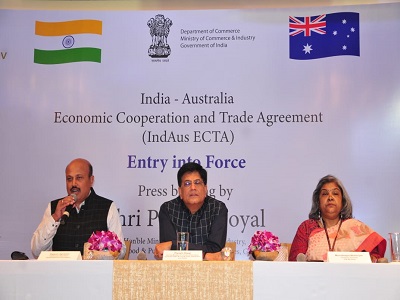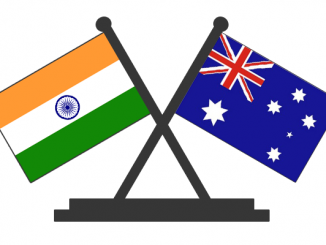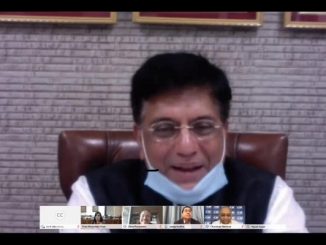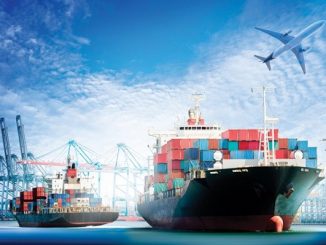
Dec 29: India has achieved the unique distinction of operationalizing two Trade Agreements this year. After the entry into force of the India-UAE Comprehensive Economic Partnership Agreement on May 1, 2022, the India-Australia Economic Cooperation and Trade Agreement (#IndAusECTA) has come into effect on December 29, 2022. The ECTA was signed on April 2, 2022; ratified on the 21st of November; and written notifications were exchanged on November 29, after 30 days. After 30 days, an agreement came into force today.
Addressing industry representatives and the media in Mumbai today, Union Commerce and Industry Minister Piyush Goyal said that an agreement has been “negotiated with the speed of Brett Lee and the perfection of Sachin Tendulkar.”
So, how will the agreement benefit the countries?
Let us listen to what the Minister has to say.
“There is a lot of potential for exporting finished goods to Australia since they hardly manufacture anything and are largely a raw material and intermediate product producing country. We will get cheaper raw materials, which in addition to making us more competitive globally, it allows us to serve Indian consumers better, enabling us to provide more quality goods at more affordable prices.”
“Australia, which is largely dependent on imports, will benefit hugely; they will soon start seeing more finished goods coming in from India, providing a huge amount of work and job opportunities in both goods and services, provided by Indian talent.”
“An agreement will also eliminate double taxation on IT services, which were making us less competitive and less profitable in the IT sector. Double taxation has now been discarded by amending the law, and from April 1st, double taxation for the IT sector will be over. We will save millions and millions of dollars right now, and over a billion dollars going forward, maybe over the next five to seven years, will give us a competitive edge and create a lot of jobs as well.”
“I appreciate the Australian government for being very sensitive and considerate, for giving us full cooperation throughout the negotiations, especially in protecting the interests of the farmers and dairy sector of India. “Products such as agricultural products and the dairy sector, which were particularly sensitive for India and for which Australia had never previously signed an agreement, have been safeguarded. I am very grateful to the Australian government for this.”
Indian goods on all tariff lines to get access to the Australian market with zero customs duty
The Indo-Aus ECTA provides an institutional mechanism to encourage and improve trade between the two countries. It covers almost all the tariff lines dealt with by India and Australia.
India will benefit from preferential market access provided by Australia on 100% of its tariff lines, including all the labour-intensive sectors of export interest to India, such as gems and jewellery, textiles, leather, footwear, furniture, food, agricultural products, engineering products, medical devices, and automobiles. On the other hand, India will be offering preferential access to Australia on over 70% of its tariff lines, including lines of export interest to Australia, primarily raw materials and intermediaries such as coal, mineral ores, and wines.
As regards trade in services, Australia has offered wide-ranging commitments in around 135 sub-sectors and Most Favoured Nation (MFN) status in 120 sub-sectors covering key areas of interest to India.
On the other hand, India has offered market access to Australia in around 103 sub-sectors and Most Favoured Nation status in 31 sub-sectors from the 11 broad service sectors such as ‘business services,’ ‘communication services,’ ‘construction and related engineering services,’ and so on.
Under the agreement, both sides have also agreed to a separate annexe on pharmaceutical products, which will enable fast-track approval for patented, generic, and biosimilar medicines.
An estimation of this agreement would be creating an additional 10 lakh jobs in India under ECTA. Indian yoga teachers and chefs benefit from the annual visa quota. Over 1 lakh Indian students would benefit from a post-study work visa (for 18 months to 4 years) under the ECTA. The agreement is likely to increase investment opportunities, promote exports, create significant additional employment, and facilitate strong bonding between the two countries.
India considers Australia to be a prominent strategic partner. They are also part of the four-nation QUAD, the Trilateral Supply Chain Initiative, and the Indo-Pacific Economic Forum (IPEF).
All the necessary notifications required for the entry into force of the Indo-Australia ECTA on December 29, 2022, have been issued by the Department of Revenue and the Directorate General of Foreign Trade in the Department of Commerce.
A few shipments have been given preferential access certificates by Commerce and Industry Minister Piyush Goyal, in Mumbai today.
Disclaimer: We donot claim that the images used as part of the news published are always owned by us. From time to time, we use images sourced as part of news or any related images or representations. Kindly take a look at our image usage policy on how we select the image that are used as part of the news.


